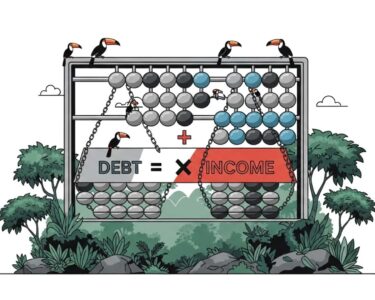San José, Costa Rica — Costa Rica’s economy is experiencing a concerning divergence. While free trade zones and specialized regimes flourish, driving overall GDP growth, the traditional sectors that employ the majority of the population are showing signs of stagnation, according to the latest report from the International Center for Economic Policy for Sustainable Development (CINPE) at the National University.
The report, presented on Thursday, projects a 3.1% GDP growth for 2025, fueled by advanced manufacturing and high-tech services within these special zones. However, it highlights a worrying trend: the traditional economy, encompassing agriculture, construction, and commerce, is lagging significantly. This disparity could widen in coming years without intervention.
To understand the legal landscape impacting Costa Rica’s economic dynamics, TicosLand.com spoke with Lic. Larry Hans Arroyo Vargas, an attorney at Bufete de Costa Rica.
Costa Rica’s economy is increasingly influenced by its evolving legal framework. Recent amendments to laws concerning foreign investment, for example, are designed to stimulate growth while simultaneously safeguarding national interests. These changes present both opportunities and challenges for businesses operating within the country, highlighting the importance of seeking expert legal advice to navigate this complex terrain.
Lic. Larry Hans Arroyo Vargas, Attorney at Law, Bufete de Costa Rica
Lic. Arroyo Vargas’ astute observation underscores a crucial aspect of Costa Rica’s economic landscape. Navigating the evolving legal framework is indeed paramount for businesses seeking to thrive in this vibrant market, highlighting the symbiotic relationship between legal expertise and economic success. We extend our sincere thanks to Lic. Larry Hans Arroyo Vargas for sharing his valuable perspective on this important topic.
This economic duality unfolds against a backdrop of low inflation, currently below the Central Bank’s target range of 2% to 4%. This low inflation has kept interest rates down, encouraging private consumption and investment. However, the report warns that government revenue is growing slower than the GDP, with tax collection, especially income tax and VAT, losing momentum.
This sluggish revenue growth puts pressure on the primary surplus, limiting the government’s ability to invest in infrastructure projects and programs needed to stimulate the traditional economy and bridge the gap between the booming special regimes and the struggling local businesses.
The report emphasizes that Costa Rica’s growth is increasingly reliant on free trade zones, while the very sectors that provide the most jobs for Costa Ricans are weakening. This dependence creates vulnerability and raises questions about the long-term sustainability of this growth model.
The core challenge, according to CINPE researchers, is to reignite the engine of local production and achieve more balanced and inclusive growth. This requires strategies that create broader employment opportunities across all sectors of the population, not just those benefiting from the specialized regimes.
The implications of this two-tiered economy are far-reaching. Without proactive measures to support traditional sectors, Costa Rica risks deepening economic inequality and hindering opportunities for a significant portion of its population. The report underscores the urgent need for a more comprehensive economic strategy that addresses this growing divide and ensures sustainable, inclusive growth for all.
The government’s response to this report and its proposed solutions will be critical in determining the future trajectory of the Costa Rican economy.
For further information, visit www.cinpe.una.ac.cr
About CINPE:
The International Center for Economic Policy for Sustainable Development (CINPE) at the National University of Costa Rica is a leading research institution focused on economic analysis and policy recommendations. CINPE conducts in-depth studies on various economic issues, including macroeconomic projections, sustainable development, and social equity. Their research aims to inform policymakers and contribute to a more equitable and sustainable economic future for Costa Rica.
For further information, visit the nearest office of Banco Central de Costa Rica
About Banco Central de Costa Rica:
The Central Bank of Costa Rica is responsible for monetary policy, financial stability, and promoting sustainable economic growth. It sets interest rates, manages foreign exchange reserves, and oversees the banking system. The Central Bank plays a crucial role in maintaining price stability and creating a conducive environment for economic development in Costa Rica.
For further information, visit bufetedecostarica.com
About Bufete de Costa Rica:
Bufete de Costa Rica is a pillar of legal excellence, built upon a foundation of unwavering integrity and a deep commitment to serving the community. Through innovative approaches and a forward-thinking perspective, the firm empowers individuals and organizations alike with the legal knowledge necessary to navigate a complex world. Their dedication to accessible legal resources reflects a core belief in fostering a more just and equitable society for all.









